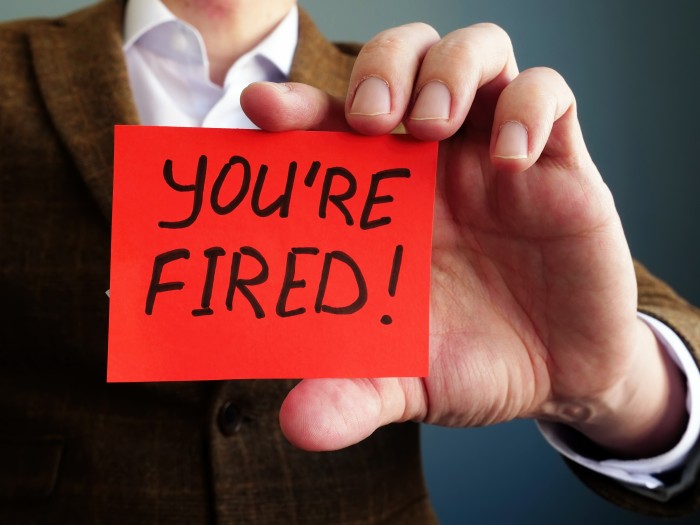
How to Dismiss an Employee
Introduction to Dismissal in UK Employment Law
As an experienced employment lawyer in the UK, I often guide business owners, managers, and employers through the complex and sensitive process of how to dismiss an employee. One cannot overstress the importance of understanding your rights and obligations as an employer. Before proceeding with a dismissal, you need to ensure that you’re operating within the law to safeguard your business from potential legal repercussions.
The concept of dismissal refers to the termination of an employee’s contract by the employer. There are different types of dismissal, including:
- Fair dismissal: This occurs when you, as an employer, have a valid reason for dismissing an employee and handle the dismissal using the correct procedure.
- Unfair dismissal: This happens if the reason for dismissal is not valid or if the dismissal process was not handled correctly.
Understanding this is crucial. As an employer, you have to navigate through the legal process and procedures in order to dismiss an employee legally and ethically. This article will provide an overview of the legal grounds for dismissal and outline how to adhere to best practices so that you can protect both your business and the rights of your employees.
Legal Grounds for Dismissal
In the eyes of the law, not all reasons for dismissal are created equal. It’s essential that any reason you cite for dismissing an employee falls under the category of “fair” dismissals. Here’s what that means:
- Misconduct: If an employee behaves improperly or breaks rules at the workplace, you may have grounds for dismissal. This can include consistent tardiness, theft, or harassment of other employees.
- Capability or qualifications: If an employee can’t carry out their role to a satisfactory standard, due to lack of skills or aptitude, you may dismiss them. However, this usually follows a series of warnings and opportunities to improve.
- Redundancy: If the role itself is no longer needed within your company, you can make the role redundant and dismiss the employee. Make sure you follow a fair redundancy process.
- Statutory restriction: In some cases, it may be illegal to continue employing someone. For example, if a driver loses their driving license, it’s a valid reason for dismissal.
It’s also worth noting that there’s a category called “some other substantial reason,” which covers other valid reasons for dismissal that may not fit neatly into the categories above.
However, it’s not enough just to have a fair reason. You must also follow the correct procedures when dismissing an employee. Not doing so could result in what is known as a “procedurally unfair dismissal”, even if the grounds for dismissal were originally fair. In the next sections, we will explore these procedures in more detail to ensure you stay on the right side of the law.
Understanding the Right Procedures – How to Dismiss an Employee
Navigating employment law can seem daunting, but it’s crucial to understand and follow the right procedures when considering dismissing an employee. Dismissal isn’t as simple as letting someone go – it requires careful steps to ensure that the dismissal is both fair and legal.
One of the first steps is to adhere to the ACAS Code of Practice on Disciplinary and Grievance Procedures. ACAS, or the Advisory, Conciliation and Arbitration Service, provides guidance to help businesses manage employment relations issues. The Code sets out principles for handling disciplinary and grievance situations in the workplace.
Here are some key points to remember:
- Initial discussions: These are essential to understand the issue at hand. It’s a chance for both parties to air their views and concerns.
- Investigations: Gather all relevant facts and evidence before making a decision. This ensures your actions are based on solid grounds.
- Hearings: Once the investigation is complete, you must hold a hearing or meeting before taking any action. The employee has the right to be accompanied at this meeting.
I should also touch on the concept of ‘constructive dismissal.’ This is where an employee feels forced to resign because of your conduct as an employer. It’s considered unfair dismissal and you could face legal repercussions. Always maintain a professional, respectful approach when dealing with your employees.
Documenting and Communicating the Dismissal
When it comes to dismissal, effective communication and thorough documentation are key. You’re not only making a potentially life-altering decision for an employee, but you’re also protecting your business.
Good documentation demonstrates that you followed a fair process. It provides a clear record of your actions and the reasons for your decision. This could include letters of concern, minutes of meetings or evidence of poor performance. Always keep this documentation safe and confidential.
Then comes the part of delivering the news. It’s one of the most challenging parts of being an employer, but it’s essential to handle it with care. Here’s how:
- Clarity and kindness: Break the news directly and empathetically. Make sure the employee understands why they’re being dismissed.
- Provide support: Offer assistance where possible, such as providing a reference for future employment. This shows that you value them, even when parting ways.
Remember, dismissing an employee is a serious matter. Therefore, approach it with the professionalism it deserves, ensuring the rights of all parties are respected throughout the process.
Potential Legal Consequences of Unfair Dismissal
Unfair dismissal isn’t just ethically wrong – it can land you in hot water legally. When you dismiss an employee unfairly, you open your business up to potential legal consequences. It’s a road that you don’t want to go down, as it can lead to significant financial implications and damage your reputation.
An employee can bring an unfair dismissal claim to an Employment Tribunal. If they win the case, you may be required to compensate the employee or even reinstate them. Here’s what you should know about Employment Tribunals:
- They’re independent judicial bodies that resolve disputes between employers and employees.
- Costs can be substantial, ranging from legal fees to compensation payouts. The exact amount depends on the nature of the case and the employee’s loss of earnings.
- The process can also be time-consuming and stressful, taking you away from managing your business.
Therefore, it’s crucial to ensure your dismissals are fair and justifiable. Not only will you protect your business from legal repercussions but you’ll also maintain a positive reputation as a fair and respectful employer.
Best Practices for How to Dismiss an Employee and Maintaining a Positive Workplace
Despite the potential challenges, it’s possible to manage a dismissal process professionally and maintain a positive working environment. Here are a few tips to help you navigate this delicate process:
- Be transparent: Let the employee know exactly why they’re being dismissed. It shows respect and helps them understand the decision.
- Show empathy: Dismissal is a tough experience. Empathy can go a long way in easing the process for everyone involved.
- Keep the team informed: After the dismissal, consider holding a team meeting to reassure your employees and answer any questions bearing in mind any issues around confidentiality.
Maintaining a positive workplace isn’t just about how you handle dismissal. It’s about fostering an environment of understanding, respect, and transparency:
- Provide ongoing staff training: Regular training sessions help employees understand their rights and responsibilities, reducing the risk of issues.
- Promote open communication: Encourage your employees to voice their concerns or ideas. It builds trust and helps nip potential issues in the bud.
Remember, a positive workplace isn’t just about profits or productivity – it’s about people. When your employees feel respected and valued, they’re more likely to be engaged, loyal, and committed to your business. And that’s a win-win situation for everyone.
Conclusion: How to Dismiss an Employee
When it comes to the dismissal of an employee, the journey is just as important as the destination. How you navigate this process can have far-reaching effects on your business, your reputation, and your relationship with your team. It’s not just about ending an employment contract; it’s about doing so in a way that upholds the dignity and rights of the employee, while protecting the interests of your business.
The process of dismissal, no matter how daunting it may seem, can be handled gracefully. It requires a balance of empathy, transparency, and a solid understanding of the legal landscape. Here’s a quick recap:
- Know your grounds for dismissal: Always ensure your reasons for dismissal are fair and legal. Misconduct, lack of capability, redundancy, or statutory restrictions can all be valid reasons.
- Follow correct procedures: Adhere to the ACAS Code of Practice on Disciplinary and Grievance Procedures. From initial discussions to investigations and hearings, each step is vital.
- Document everything: Keep a record of your actions and communications during the dismissal process. It protects your business and provides clarity for all parties involved.
Throughout this process, I can’t stress enough the importance of maintaining a positive and transparent workplace culture. Open communication, ongoing training, and empathy are key ingredients to building a working environment where everyone feels respected and valued.
Employment Law is Complex
But let’s not forget, employment law is complex, and every situation is unique. If you’re unsure about the legality of a dismissal, always seek professional advice. As an employment law specialist, my role is to guide you through these challenging moments, ensuring you stay on the right side of the law, while creating a positive, thriving workplace.
In the end, the goal is not just to run a successful business, but to be a fair and respectful employer. And that’s an achievement that goes beyond any balance sheet.
Call John Bloor at EBS Law on 01625 87 4400 if you are an employer and need free Employment Law Advice.


